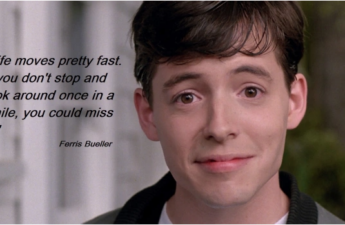“If I don’t get a high score on the SAT (or ACT), I’m never getting into college, then I’ll be a total failure, all these AP classes will have been for nothing and I’ll be homeless!” Many of the juniors and seniors (and their parents) we advise sense some variation of this stress–which is a lot of pressure and expectation on each question of one test. The unknown consequences (yet, predicting continues nonetheless) of the test scores contributes to an already complex test situation–a 3 hour and 45 minute test starting at 8 am on a Saturday morning for a teenager, after a full week of school–Advanced Placement classes and extracurricular activities–not to mention trying to concentrate with the kid sniffling in the back corner and the proctor wandering the aisles. The complexities of the test situation itself and that life’s outcomes aren’t dependent on a single instance can help students (and parents) put the test in perspective.
Let’s pan out to 30,000 feet for a moment. The SAT and ACT test scores are only ONE part of the college admissions evaluation process. Grades, the types of classes a student’s taken during high school, extracurricular activities, letters of recommendation, and the student’s own personal statements–plus, some colleges conduct admissions interviews–are all accounted for in the evaluation of a student. Also, there are colleges that don’t require SAT or ACT test scores as part of the application.
If a student is concerned about their scores, practice, practice and practice some more. (Now, in our experience, completing SAT or ACT practice questions over and over is the absolute last task a kid wants to do–see above description of a typical college-preparing student’s life.) Yet, practice can help students identify what content needs reviewing and build confidence in their ability to answer the questions, just from familiarity.
The uncertainty may not ever fully “go away.” The challenge of wrangling with the uncertainties, while moving forward anyways, tells (indirectly) any college that the student has stamina and ambition, before even looking at the actual test scores.
_____________
Jill Yoshikawa, Ed M, is a University of California and Harvard trained educator and Partner at Creative Marbles Consultancy. You can contact Jill at [email protected] or, read her short biography.



